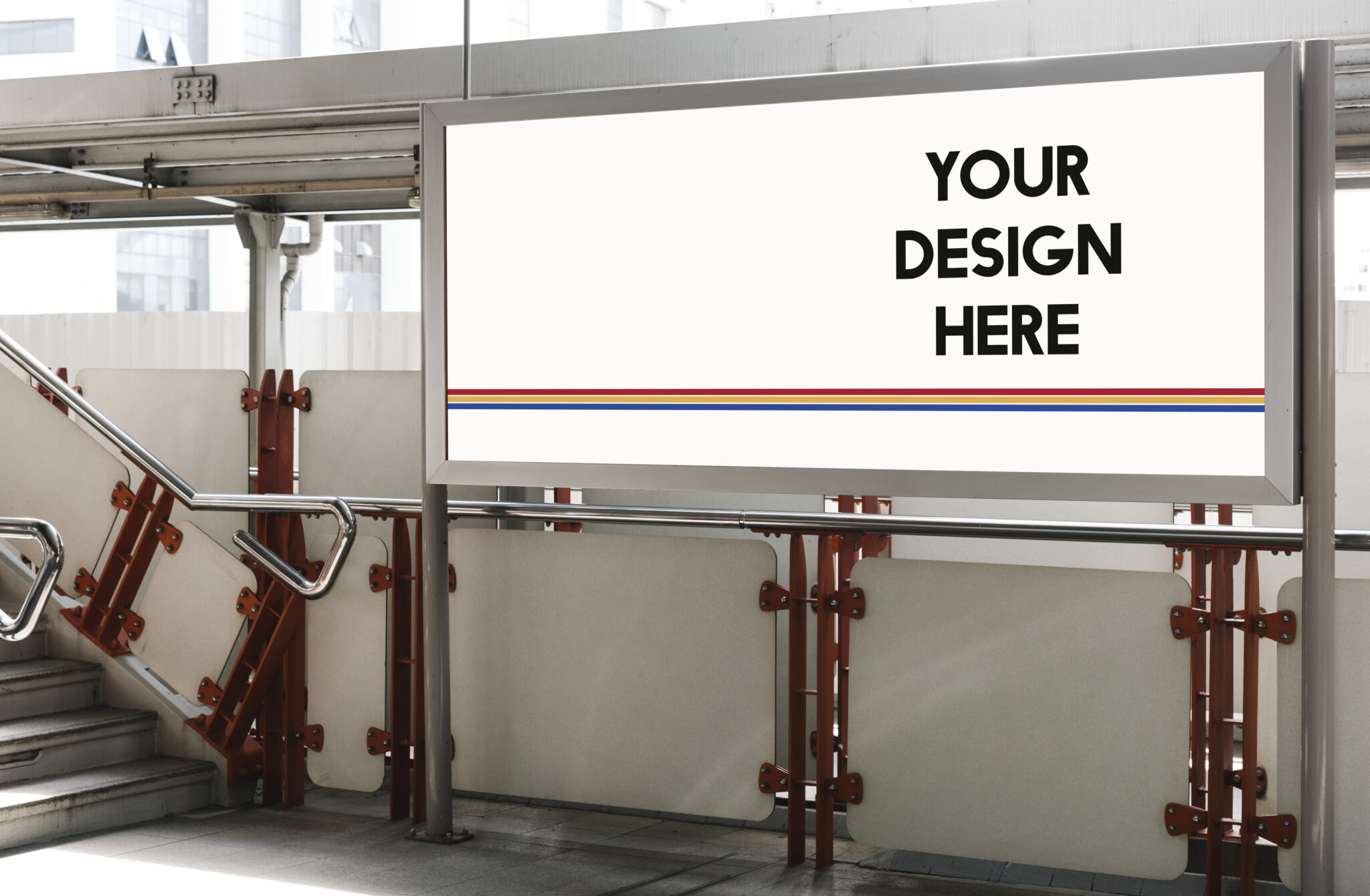Despite multiple online advertising channels, OOH advertising has continued to evolve, adapting to changing market trends and creating new opportunities for businesses.
With the OOH market projected to continue its upward trajectory toward $31.23 billion by the end of 2023, it is crucial to realize that most brands are adopting OOH as a viable advertising opportunity. This is mostly due to its very low CPM rates.
From innovative digital displays to experiential activations, we highlight the most effective strategies and emerging trends reshaping the OOH landscape.
1. User-Generated Contents
Twitter’s successful OOH campaign in 2020 is a prime example of the potential of user-generated content in OOH advertising. This tactic involves creating a campaign that places the audience at the center of attention and prompts them to create content related to the advertisement.
The campaign involved collecting tweets from users about their experiences in 2020 and displaying them on billboards in various cities. Twitter created custom graphics for each tweet and displayed them in strategic locations, including Times Square.
By featuring user-generated content, Twitter connected with its audience on a personal level, and also generated some decent buzz around the “bluebird” brand.
This approach highlights the power of user-generated content in OOH advertising, as it enables businesses to showcase the creativity and perspectives of their audience. Users are more likely to engage with content that they have created themselves.
2. Virtual and Augmented Reality (VR/AR) Billboards
This unique and immersive experience is an effective way to encourage social sharing and word-of-mouth marketing.
The audience can interact with virtual or augmented objects that appear in the real world. This can be done using special glasses, a mobile app, or other technology.
These interactions can take many forms, from playing games to exploring virtual environments to trying products in a virtual space.
One of the most successful examples was Pepsi Max’s “Unbelievable Bus Shelter” campaign. Pepsi created a bus shelter with a large screen that displayed an AR experience.
The screen featured various scenarios including an alien invasion, a tiger on the loose, and a meteor crashing to Earth. Passersby were able to interact with these scenarios in real-time, creating a truly immersive experience.
Pepsi MAX | Unbelievable Bus Shelter
3. Skyvertising
The novelty of seeing an airplane, blimp, or drone carrying a banner or billboard in the sky is sure to catch the eye of people on the ground.
Skyvertising can also reach people who are not exposed to traditional forms of advertising, such as those who don’t watch TV, listen to the radio, or read newspapers.
Although there are limitations in expense, weather conditions, and airspace regulations, skyvertising has more benefits to consider.
It can be highly targeted, allowing advertisers to reach specific demographics and locations. For example, an airplane banner can fly over a beach or sporting event where a company’s target audience is likely to be.
Similarly, drones can be programmed to fly over specific neighborhoods or events, providing a customized and unique advertising experience.
The recent example of Candy Crush’s 10th-anniversary celebration with drones is an excellent showcase of the potential of skyvertising. Candy Crush transformed the sky into an enormous display with an impressive 10-minute exhibition of choreographed drones featuring lights.
4. Ads in transit
Transits present a top opportunity for OOH advertising due to their high footfall and extended periods of exposure to advertisements. The audience is exposed to the ads repeatedly throughout their journey during peak times of the day.
You can leverage this opportunity by placing ads along popular routes and using various formats such as billboards, digital screens, bus wraps, automated delivery robots, and station dominations for maximum impact.
Technology can also be used to personalize messages and engage with the audience through interactive features like QR codes and NFC tech.
Nickelytics is the leading provider of this type of advertising opportunity. It has helped leading brands deliver compelling ad campaigns through wrapped vehicles and automated delivery robots at a CPM below $3.
5. Contextual OOH ads
Most OOH ads are contextual. By serving ads based on the user’s location or behavior, advertisers can ensure that their messages are reaching the right people at the right time.
For example, a coffee shop might use contextual advertising to target consumers who are walking by in the morning with an ad for their breakfast menu.
This will ensure that your ads are seen by people who are already interested in your products and are more likely to make a purchase.
6. Utilize mobile technology
To increase interaction with your outdoor ads, consider incorporating QR codes that users can scan to access more information about your products or services.
To encourage more people to scan the code, consider making it creative or offering a reward. For example, offer a 30% discount to customers who purchase by scanning the QR code.
Another way is through location-based targeting. With GPS and other location technologies, ads can be delivered to consumers based on their location, such as a bus shelter ad for a coffee shop when the consumer is nearby.
Conclusion
The enduring appeal of OOH advertising lies in its ability to combine the tangible and physical with the intangible and virtual.
By harnessing the power of the physical environment and leveraging cutting-edge technology, businesses can create immersive and memorable experiences that leave a lasting impression on consumers.
So whether you’re a startup looking to make a splash or an established brand seeking to expand your reach, these top OOH advertising opportunities offer the perfect blend of evocative designs and practical strategies to take your branding and growth to the next level. Partnering with Nickelytics can help you deliver these results efficiently.




